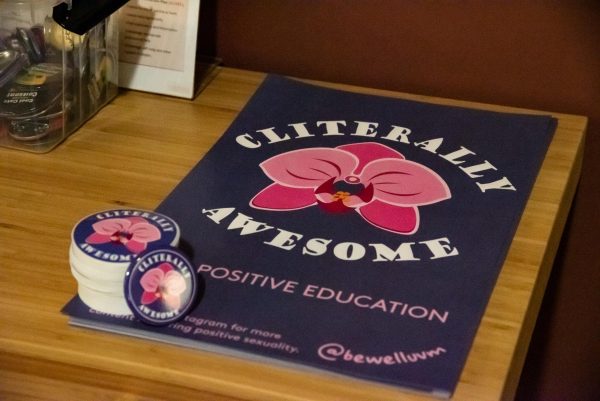Dungeons & Dragons
September 14, 2018
When people think of Dungeons & Dragons, their minds conjure images of dark, musty basements occupied by zealous fanboys wielding mighty cardboard swords, ancient relics gripped tightly in hands that have seen frequent battle and Cheetos dust.
While this depiction, lovingly featured in shows such as “Stranger Things” and “Freaks and Geeks,” provides some insight into the sheer epicness of tabletop role-playing games, it serves only as a limited preview into a universe of monsters, spells, gods and legends.
D&D is an interactive role-playing game in which players create playable characters with the purpose of exploring a fantasy world alongside their friends.
This exploration typically entails solving mysteries, battling monsters and discovering treasure.
The best way to witness games like D&D in their full scope is to watch them unfold in real time with real people. Here at UVM, there are several informal groups that play the game.
What the fantastical novice might first discover, perhaps to their surprise, is that tabletop role-playing games like D&D are enjoyed by a diverse array of people from all over the world, according to a January 2018 GeekGirlCon.com article.
Some explanations for its widespread popularity are the game’s ability to develop teamwork and leadership skills and to help players forge strong friendships.
“It’s a fun way to escape from schoolwork for awhile,” junior Ariel Martin said.
While comedic shows like “Fear of Girls” portray such games as alternatives to more sociable activities, they are, in fact, a means of fostering social connection in addition to creativity and critical thinking.
Artists may find D&D quite cathartic in that all modes of gameplay involve designing complex characters, intriguing settings and engaging plots.
The latter two responsibilities fall to the Dungeon Master, or DM, the individual who acts as “God” within the realm of the game. The DM interacts with the other players in fun and inventive ways while constructing an entire universe for their companions to explore.
“The worlds people build are so well structured, but also free in terms of being able to go anywhere in the narrative,” Martin said.
Junior Avry Eaddy-Holmes has run many games that have successfully engaged her peers.
“The game takes on a life of its own,” Eaddy-Holmes said.
Despite its kinky connotation, the title of DM can often bring with it certain unforeseen pressures.
“Sometimes it can be difficult to rein in a group of players and to get their attention, especially when you’ve spent so long working on a story for them to explore,” Eaddy-Holmes said.
Even though the group can often move off-course from the campaign, these random bursts of creative energy can often inspire hilarious, meaningful and captivating results, she concedes.
“Eventually you just learn to embrace the beauty of the unexpected,” Eaddy-Holmes said.
Perhaps the most compelling epiphany a player can experience is the realization that the world of elves, wizards and dragons bears a striking resemblance to our own, characterized largely by unpredictable encounters with forces we can’t always understand.
Sometimes risks pay off, but other times players are knocked down, uncertain of their ability to get back up again. And when that happens, they can only hope that their friends are there to help lift them up when they fall.
For a long time, games like D&D have been confined only to certain circles and parts of the world, known only to few, and, as a consequence, widely misunderstood. But with the emergence of a new and exciting age where nerdery is celebrated and adored, “Dragon Mania” holds promise as the new cultural contagion.
















